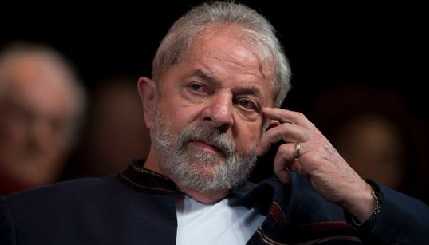
BRASILIA, Nov 10 (Reuters) - Brazil's leftist President-elect Luiz Inacio Lula da Silva said on Thursday that many expenditures considered government spending should instead be seen as investments, rattling markets still unsure on the details of his economic policies.
Lula insisted in a speech that he would maintain fiscal discipline, but his comments added to growing investor skepticism that he would keep a lid on spending. Concerns have been mounting about Brazil's public finances after major outlays through the pandemic and this year's presidential election.
Brazil's currency and benchmark Bovespa stock index (.BVSP) both fell over 3% in morning trading. Inflation data added to pressure, as Brazilian consumer prices rose more than expected in October after three straight months of declines.
Lula has not yet designated his finance minister and said he would consider his Cabinet picks only after returning from the COP27 climate summit next week. But his advisers are already discussing with lawmakers how to open room for more spending outside a constitutional spending cap in order to deliver on campaign promises, including a possible "Transition PEC" amending the constitution.
"The signals indicate that the spirit of the Transition PEC is very oriented around new public spending. For now, there seems to be no plan for where those resources come from and what will be the long-term adjustments," wrote Dan Kawa, chief investment officer for TAG Investimentos in a note to clients.
"The signals are terrible. The market should feel it more in the short term," he added. "The clearest impact seems to be on interest rates and the long part of the curve. It's awful for the currency and more rate-sensitive stocks."
Lula's speech to lawmakers on Thursday reinforced his campaign rhetoric about prioritizing poverty relief over the interests of the finance sector, while insisting that his 2003-2010 presidency had been a model of fiscal discipline.
Still, as tough policy tradeoffs loom, and with Lula's economic team still being defined, markets have grown less patient.
Lula seemed to make light of a "golden rule" in Brazilian budget law that prevents the government from issuing debt to finance current expenses, such as wages and social benefits.
"Our golden rule should be that every child can have a glass of milk before bed," he said. "The most affordable thing is taking care of the poor. The most expensive is guaranteeing that the financial system gets the money it's owed by the state."
Lula also said that state-owned companies would now be "respected," seeking to draw a contrast with the pro-privatization policies of outgoing President Jair Bolsonaro. State oil company Petroleo Brasileiro SA (PETR4.SA) would not be carved up, Lula said, while state lenders Banco do Brasil (BBAS3.SA) and Caixa Economica Federal would not be privatized.




